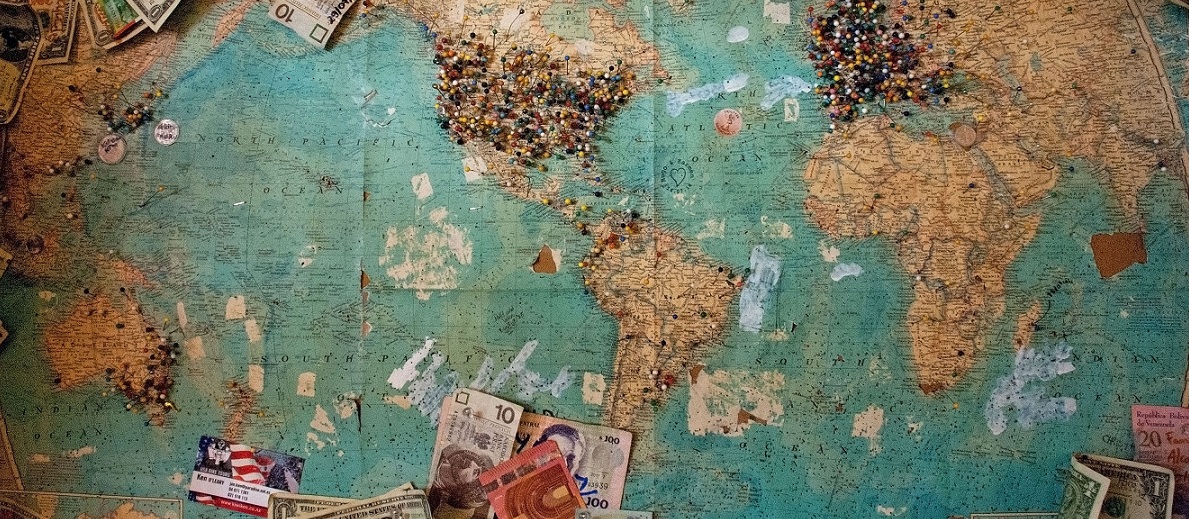Shaping a Responsible Economy
Islamic finance plays a fundamental role in shaping a responsible economy. Mobasher Zein Kazmi looks at the how and why. This article first appeared in In Focus issue 4 magazine.
The rediscovery and application of shariah compliant financial practices across member nations of the Organisation of Islamic Cooperation (OIC) has not only strategically reordered the global financial architecture but also fundamentally transformed the economic landscape of the Muslim world.
The introduction of modern Islamic Finance, or IF, through the Mit Ghamr Savings Bank experiment of Egypt in 1960 to the current global IF industry sized at more than USD2 trillion, is a resounding proof of concept to the efficacy and resiliency of IF industry as an alternative to the conventional financial order.
Consider at its core that IF is premised on the glorious Quranic principles endorsing riba-free, trade-focused, asset-based business transactions, while ensuring that obligations and rights of stakeholders are both documented and preserved. This has laid the foundation of economic interactions that encourages wealth-creation and growth but is also tempered with ethics and a sense of social responsibility, justice and fair play.
It’s within this paradigm that the three core planks of IF namely Islamic banking, Islamic capital markets and takaful, have been operating so as to facilitate a more inclusive, participatory and equitable economic system.
Emerging Responsible Economy
The global economy entered a transformative period following the Global Financial Crisis (2007-09) as regulation, compliance and risk management dominated the conversation in the jurisdictions of key financial centres. Steps taken to prevent the next contagion included mitigating the concentration risk of toxic assets on bank balance sheets while regulating the use of derivatives.
Financial institutions underwent a serious process of deleveraging and de-risking as attempts to restore faith and confidence in the international financial system took its toll on the global economy.
Yet, with this crisis came an opportunity for renewal as well as growth. It was under these challenging conditions that IF established its credentials as a responsible and resilient model in the world of finance. In conjunction with this transition towards reimagining financial services through a shariah lens came the rise and development of alternative financing and investment initiatives centred on sustainable development and impact investing. The excesses of unfettered capitalism, and uber-financialisation was no longer considered prudent in managing global economic affairs.
Driving Ethical Businesses
In addition, climate change, depletion of natural resources and negative externalities resulting from economic activity all contributed towards a shift for a more carbon-neutral and environmentally friendly socio-economic landscape.
Various stakeholders including governments, multilateral bodes, multinational corporates and a range of pressure groups recognised the imperative to introduce and adopt responsible and ethical business practices across the global supply chain. The underlying message had become increasingly clear that ‘business as usual’ was no longer tenable in the evolving global economic order. IF can play a decidedly critical role especially in key emerging markets of Asia and Africa.
IF is well placed to contribute towards this changing order given the use of value-based transactions, which facilitate an equitable and ethical socio-economic exchange. Preventing wastage, excess and exploitation in economic undertakings conforms to the overarching objectives of shariah that apprise or shape IF. Furthermore, the underlying principles of IF mandate the efficient mobilisation and allocation of resources while keeping in mind the public good. In essence, IF becomes a vital cog in fuelling the ‘halal’ economy on an end to end basis by underscoring the use of responsible business practices.
According to figures sourced from the Global Sustainable Investment Alliance’s (GSIA) 2018 investment review, an industry advocacy group tracking sustainable investments, total sustainable assets registered an impressive growth of 34 per cent in 2016-2018 period with USD30.682 trillion in assets under management (AUM). Perhaps, most commendable was the rapid jump in sustainability themed investing at 269 per cent during the corresponding period, as recorded by GSIA.
Market participants have categorically responded in favour of choosing to invest in assets that maintain a net positive social impact by voting with their dollars. Institutional and retail investors alike are now recognising that their investment decisions are enabling greater capital flow mobilisation for responsible economic undertakings and such asset selection is not necessarily compromising investment return potential.
It’s perhaps this convergence of sustainability investing and IF that can help unlock synergies in realising the broader SDGs that will cement the formation of a responsible economy.
Islamic Finance and Sustainability
IF can play a significant and decisive role in expanding impact investing for the betterment of humankind. Its principal foundation is based on social justice and provides the moral grounding to embrace ethical business and capital formation fully aligned with maqasid shariah, which are goals of Islamic law.
Ahead of the pack is Malaysia. It has led the issuance of the first ever ‘green’ sukuk in July 2017 and introduced incentives for issuers under its Securities Commission (SC). Malaysia’s Sustainable and Responsible Investment (SRI) Sukuk framework intends to utilise funds sourced from investors for allocation towards environmentally sustainable and climate friendly infrastructure projects.
Reports by Reuters find that the SC has followed through by also unveiling a grant scheme to help offset the costs of external review of up to 90 per cent and encourage greater Malaysian Ringgit denominated green sukuk issuance in the country. SC Malaysia has also been very proactive in opening up the bond and sukuk market in the country to retail investors by relaxing existing regulations.
Since the launch of the landmark green sukuk there have been additional developments that validate market interest in sustainable and responsible finance. A Malaysia’s national newspaper, The Star, reports that BIMB Investment Management, a subsidiary of Bank Islam Malaysia, setup the first ever environmental, social and governance (ESG) sukuk fund, which should complement demand for green sukuk. Neighbouring Indonesia also demonstrated its commitment to low carbon and climate resilient infrastructure projects at a state level through its February 2018 USD1.25 billion sovereign green sukuk offering, as shown in table below.
Green Sukuk Issuances as of 11 March 2019
| Issuer | Country | Issue Date | Currency | Funds Raised | Use of Funds |
| Tadau Energy | Malaysia | Jul-17 | MYR | 58 | Solar power project |
| Quantum Solar Park Semenanjung | Malaysia | Oct-17 | MYR | 236 | Solar power project |
| PNB Merdeka Ventures | Malaysia | Dec-17 | MYR | 461 | Real estate development in KL complying with green accreditations |
| Mudajaya Group | Malaysia | Jan-18 | MYR | 63 | Solar power project |
| Indonesia | Indonesia | Feb-18 | USD | 1,250 | Various green projects |
| UiTM Solar Power | Malaysia | Apr-18 | MYR | 57 | Solar power project |
| Pasukhas Green Assets | Malaysia | Feb-19 | MYR | 49 | Hydro power plant and other renewables |
| Indonesia | Indonesia | Feb-19 | USD | 750 | Various green projects |
Source: Bloomberg, S&P Global Ratings, ASEAN Capital Markets Forum
Note: Assets in USD million
The MENA region is also seeing value and opportunity in green sukuk via the Green Sukuk and Working Party (GSWP) established by the Clean Energy Business Council, the Climate Bonds Initiative as well as the Gulf Bond and Sukuk Association (GBSA). In particular, GCC countries would be well placed to capitalise on green sukuk given the range of renewable energy projects for sustainable development on offer in the region.
For example, Dubai is targeting a renewable energy mix of 75 per cent by 2050. While Saudi Arabia, as reported by S&P Rating Global, has committed to a USD200 billion solar project with an annual generation capacity of 200,000 MW. A core strategic objective of the UAE’s Green Agenda 2015-2030 initiative is focused on ensuring economic competitiveness through sustainability clean energy and preservation of the environment for future generations.
There’s now a clear and distinct link between sukuk and the financing of green projects given that the principles of responsible and ethical investing, which underpin Islamic finance is reinforced through shariah that categorically calls for the preservation of the environment. To ensure the highest level of integrity all green sukuk issued to date are in compliance with the ASEAN Green Bond Standards that are based on the International Capital Market Association’s Green Bond Principles.
Long-term Outlook
The IF industry needs to considerably enhance its efforts in promoting green sukuk or green project finance, or both, as the investment vehicles of choice within green financial products and services as part of broader efforts to contribute to the formation of a responsible economy.
Other traditional asset classes such as Islamic equities can be considered as part of a balanced portfolio but green finance enables market participants to directly fund sustainable assets such as renewable energy projects and such, while also realising appropriate risk adjusted returns.
Providing an enabling environment for preserving natural resources, promoting renewable energy and reducing gashouse emissions should be the priority of regulators across all jurisdictions and not just Muslim-majority countries comprising the OIC. The win-win proposition for issuer and investors alike especially within an IF context is the interplay between values-based financing and impact investing.
The scope for constituting a responsible economy is there given the long-term infrastructure needs and energy demand of many emerging Muslim countries. It remains to be seen whether we fully realise its value through actual implementation.
Download In Focus issue 4 magazine for more insights on The Future of Business is Sustainability.
______________________
About the Author
Mobasher Zein Kazmi is an Islamic banking consultant and researcher. He previously served as consulting director – Asia at RFi Group and head of research at The Asian Banker.





